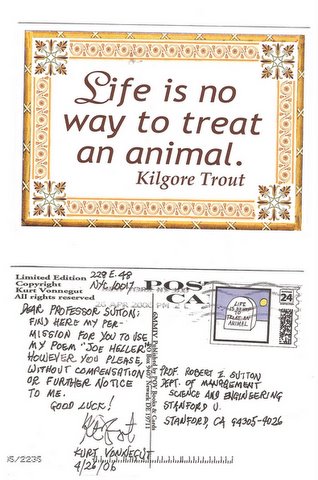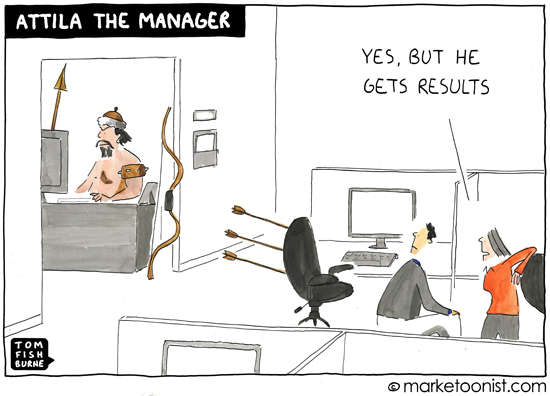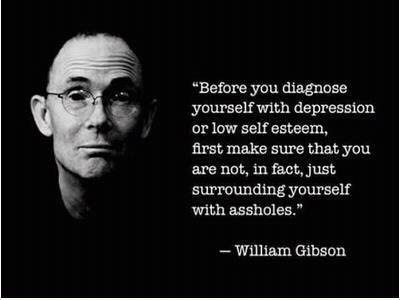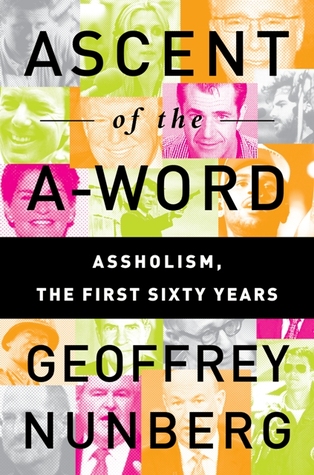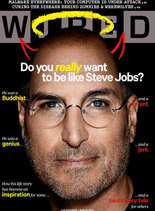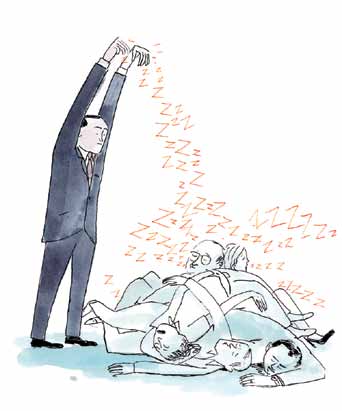The No Asshole Rule was published 10 years ago. It focused on building civilized workplaces. Yet the most frequent question that it provoked were variations of "Help. I am dealing with an asshole (or a bunch of them), what do I do?"
People asked it in some form or another in the most of the 8000 or so emails that I got about that book and in hundreds of casual conversations. I've been asked it by numerous of journalists (for both professional and personal reasons) and by critics of The No Asshole Rule who complained that the book devoted just one short chapter to addressing it. I've heard it from all kinds of people of all kinds including cashiers at Costco, Jewish Cantors and Catholic Priests, executive assistants, young lawyers who worked for nasty partners, old lawyers who worked with nasty clients, a CEO who felt oppressed by "boardholes" and "douche boards," airline customers and pilots, and on and on.
During the past decade, I took care to save the emails and other bits that people sent me about workplace jerks and other kinds of assholes. And I spent a few hours each week reading and cataloging the growing pile of academic research on all things asshole including abusive supervision, rudeness, "mobbing," abusive customers, negative emotions, air rage, and such. But it took me years to returned to writing about the asshole problem again.
I got distracted by writing two other books, other adventures such as the Designing Organizational Change Project at Stanford, and life in general. But the ten year anniversary The No Asshole Rule inspired me to devote much of 2016 to writing a book that gives the best answers I can muster to all those people who keep asking me that question. The Asshole Survival Guide was published in September 2017.
I am posting plug for my latest book on this old Work Matters blog, in part, as a kind of goodbye to the active life of this site. I may still post stuff here occasionally, but I am now using my new All Things Bob Sutton site as the main place where I post things and as the main first "stop" to find my work.
This post completes a cycle that was started back in in 2006 when Diego Rodriguez of IDEO and Metacool fame convinced me to give this new fangled blogging thing a try. Diego thought it would be a good way to create buzz for my forthcoming asshole book and he knew that I liked to write about leading and dealing with workplaces. Over the past few years, I haven't been blogging here much, and most stuff I have written has appeared on my LinkedIn Influencer pages, sometimes at Harvard Business Review and Medium, and at stray places such as INC and the McKinsey Quarterly.
Yet when I look at this site, I am amazed by how how many pieces I've posted here (many of which took a day or more to write), by the number, range, and quality of comments people have posted, by the wonderful lessons readers have taught me, and by all the connections I've made with people who reached out to me. My first real post (after deleting a couple of experiments) appeared on june 13th, 2006. It was called "Brainstorming in the Wall Street Journal": I challenged a myth, or a least a severe oversimplification, that research proves brainstorming doesn't work. My Typepad dashboard shows that there are 1180 posts on this site ( I wrote all but one or two) and 5648 reader comments. The site has had almost 4 million pageviews (3868829) since it was launched and averages 975 views per day (I am sure many are bots!).
I am not shutting down this site. Rather, I am going to pretty it up a little bit over the next couple weeks and keep it as an archive, which will remain at www.bobsutton.org and at bobsutton.typepad.com – and I may update it in small ways now and then. The new book prompted me to think about how I want to bring together my varied past work, including the stuff on this blog, and to provide one stop shopping for my new stuff as well. So I just launched a new website called "All Things Bob Sutton" that is at bobsutton.net (which now directs you to the new site instead of this one). I worked with Liz Mortati,a great web designer who Adam Grant recommended to me. The new site contains links to my various stuff, including this site, and to various other posts and articles, videos, and quizzes like the Asshole Rating Self-Exam (ARSE). And it will be updated with new stuff I've got cooking.
I invite you to follow me to the new site. There will be a lot more action there this year than there has been at the Work Matters blog in a long time. And I especially want to thank everyone who has read this blog, made comments, spread the word about various posts, and written in me in recent years to nudge me to start posting here more often. I hope you like the new place.
